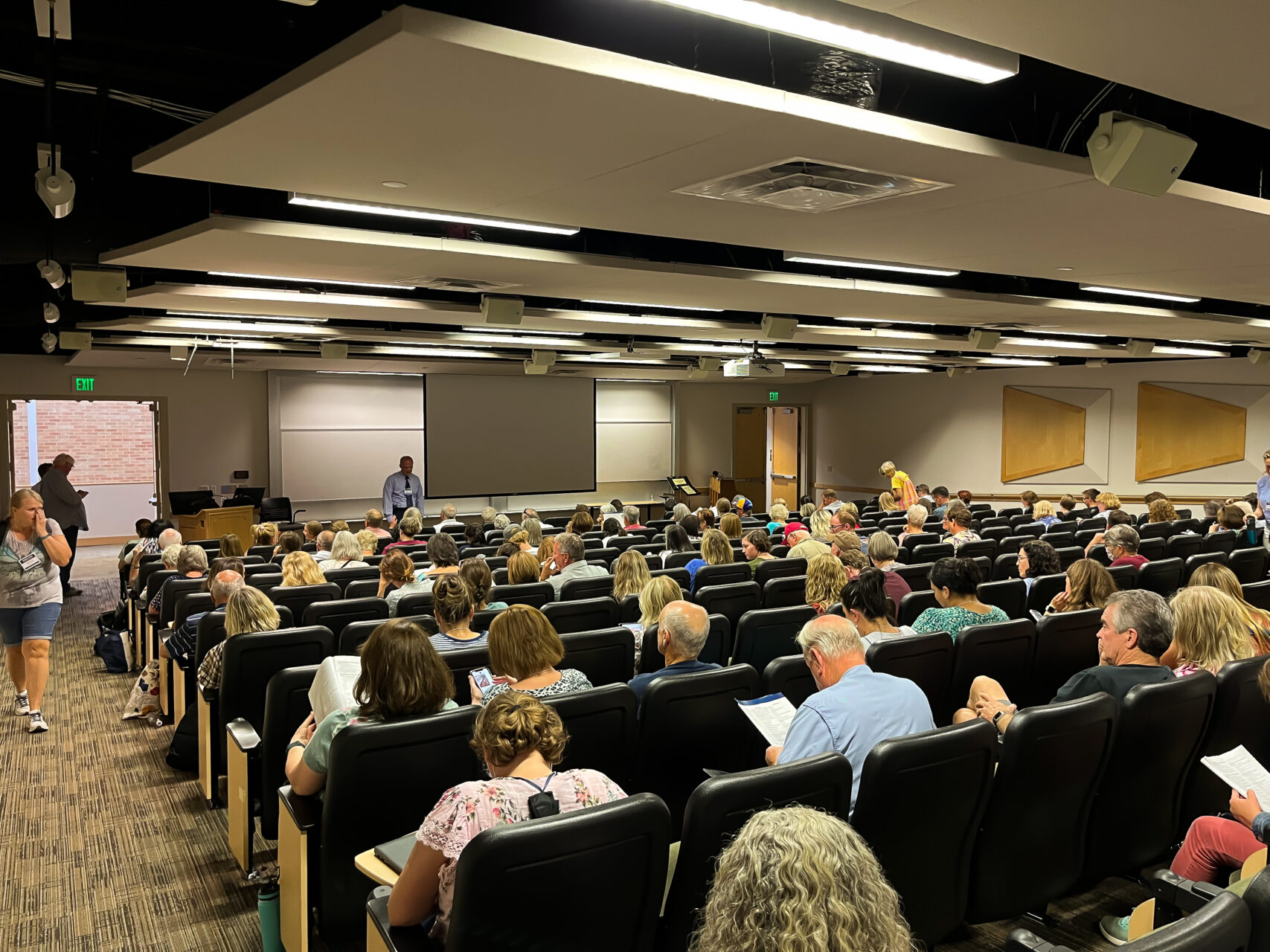
Clinical psychologist Brian K. Chandler encouraged individuals to embrace emotional fitness during his Education Week lecture on Aug. 16.
Chandler began his lecture by saying there seems to be a pandemic with anxiety and depression. “I think we need a paradigm shift,” Chandler said. “We need a different way of looking at it.”
Examining trends he has seen in recent years, Chandler said many individuals choose to “get married” to their diagnosis of anxiety or depression and it’s important for people to find ways to incorporate emotional fitness into their lives.
Chandler also said everyone is susceptible to anxiety and depression, similar to the flu or a cold. “It’s the human condition,” Chandler said. “We are more than our diagnosis.”
Chandler said despite the difficulties people face, there are certain steps and habits they can create to overcome those difficulties in an emotionally healthy way.
Chandler said to improve emotional fitness, it was important to focus on three main aspects of emotional fitness: (1) cognitive, (2) social and (3) physical.
For cognitive emotional fitness, Chandler said it’s important to acknowledge there are both rational and irrational thoughts.
“Cognitive fitness really connects us with all the other pieces of emotional health, whether it’s physical, spiritual, social or mental,” Chandler said. “That’s why it’s so important.”
Chandler said everyone gets irrational thoughts and they can lead to behaviors and outcomes which induce anxiety and depression. He compared the thoughts to mental “files” and said the more people access them, the easier it is for that anxious or depressed response to come.
“Think of someone who has been bullied or called names,” Chandler said. “Maybe their self image ‘file’ says that they’re defective or no good. It’s important to work on clearing out those irrational thoughts because they’re creating unhealthy, unnecessary and destructive emotions.”
By challenging irrational thought processes, Chandler said individuals can view themselves and the world in a new way.
However, Chandler also said it’s important to recognize that stress in moderate amounts is actually good for individuals. “It leads to optimum performance,” Chandler said.
For social emotional fitness, Chandler encouraged attendees to remove their ego from the equation. “Egos are either too big or too small,” Chandler said.
Chandler said everyone has the power to create their own world and that relationships with others is significantly impacts emotional fitness. He said when one focuses inward too much, they neglect making those social connections.
Chandler also acknowledged that physical fitness is linked to emotional fitness. He said many of the things people do to improve physical fitness can lessen symptoms of depression and anxiety.
Chandler invited participants to get adequate sleep, eat healthy foods and exercise regularly to boost emotional fitness. “Exercise can have a similar effect to an anti-depressant,” Chandler said, referring to research by the Mayo Clinic.
In embracing emotional fitness, Chandler shared the story of British cycling’s director Dave Brailsford and his efforts to improve tiny aspects of the British cycling team’s practice, gear and performance. Chandler said similar to the cycling team, individuals can start with small improvements that can lead to greater results.
Above all, Chandler encouraged those in attendance to have confidence in their emotional fitness journey. “You can do this,” Chandler said.




